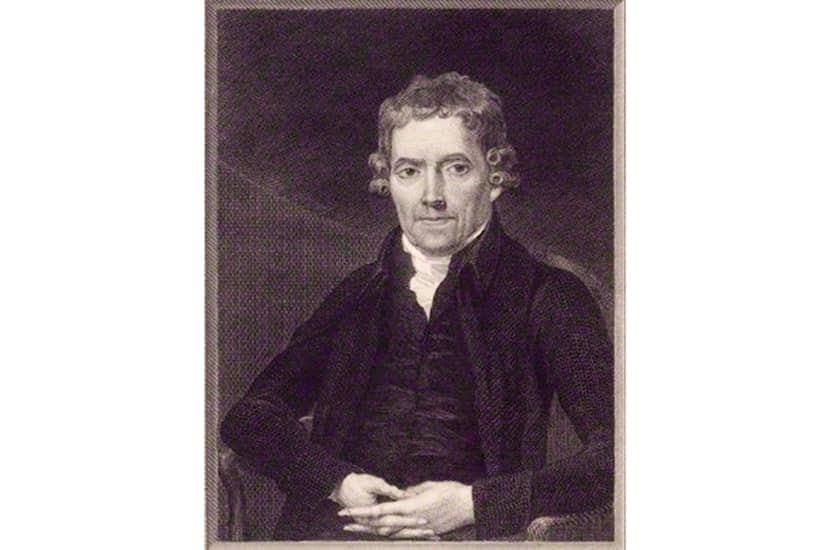There’s no excuse for dullness, especially when writing about a life as eventful as Joseph Johnson’s, the publisher and bookseller who worked with Mary Wollstonecraft, Joseph Priestley, William Cowper, Erasmus Darwin and Wordsworth and Coleridge, among others. I opened this book expecting it to lift the veil on dinner with Joseph Johnson, but the title’s a misnomer. (Other than a brief introductory passage, Johnson’s weekly dinners are mentioned only in passing.) Descriptions of his relationships with Wollstonecraft and Cowper are perhaps the most successful parts of Daisy Hay’s book, but elsewhere it is under-researched and under-written.
This becomes evident early on when she writes about the Gordon Riots. Among the crowds, William Blake watched with mounting horror the incineration of Newgate gaol and all those inside. Scholars suggest the experience led him to associate fire with revolution, and so left its mark on his psyche and poetry. But Hay omits all mention of Blake, despite his being a principal actor in her story – a shame, because he could have brought her account to life.
Again, Hay says that Richard Lovell Edgeworth ‘narrowly escaped being lynched by a loyalist crowd after he was accused of aiding the rebels’ and that Edgeworthstown, in Co. Longford, was nearly destroyed by ‘rebels’, but with no explanation of who they were. That is to say, she makes no mention of the United Irishmen and therefore cannot refer to their uprising in 1798, let alone the subsequent French invasion expected in August that year.
Such derelictions are hard to forgive. However shameful it may have been, that chapter is an important one in our colonial history, and many readers won’t know about it. The arbitrary executions of those ‘rebels’ have no place in the curriculum of English schools, though there can be few people in Ireland who have forgotten the truth of it.








Comments
Join the debate for just £1 a month
Be part of the conversation with other Spectator readers by getting your first three months for £3.
UNLOCK ACCESS Just £1 a monthAlready a subscriber? Log in